Recent Blog Posts
When Does a Texas Gun Case Fall Under Federal Jurisdiction?
 Gun cases in Texas can be complicated, potentially involving federal and state authorities. Sometimes, a case can begin as a state charge and be escalated to federal jurisdiction.
Gun cases in Texas can be complicated, potentially involving federal and state authorities. Sometimes, a case can begin as a state charge and be escalated to federal jurisdiction.
If you have been accused of a state or federal gun crime, a San Antonio, TX federal gun crimes defense attorney can help you understand the laws that apply to your case and how you may be able to challenge the charges. First, consider the difference between state and federal charges and the types of cases that fall under both.
Difference Between Federal and State Jurisdiction
In the simplest terms, state jurisdiction covers gun crimes that violate Texas state laws, and federal jurisdiction applies when federal laws are violated. When the state has jurisdiction, the authorities involved are state or county prosecutors and local police, and they follow state law. Under federal jurisdiction, the Bureau of Alcohol, Tobacco, Firearms, and Explosives (ATF) or the FBI will typically handle the investigative work, and U.S. attorneys often prosecute.
What Happens if You Fail a Breathalyzer During a DWI Stop?
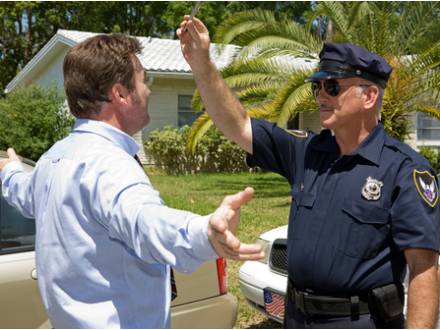 Every case is different, but in general, if you fail a Breathalyzer test after being stopped for Driving While Intoxicated (DWI), that does not mean that you are definitively guilty. While it is evidence that the persecution will likely use against you, an experienced San Antonio DWI defense attorney may be able to challenge the test results.
Every case is different, but in general, if you fail a Breathalyzer test after being stopped for Driving While Intoxicated (DWI), that does not mean that you are definitively guilty. While it is evidence that the persecution will likely use against you, an experienced San Antonio DWI defense attorney may be able to challenge the test results.
How Can You Challenge a Failed Breath Test?
There are several defenses your lawyer may use to challenge a failed breath test admitted as evidence, including:
-
Improper test administration: Texas has a procedure for administering a Breathalyzer test. Your attorney may challenge the validity if they find evidence of procedural violation, such as handling or storing the test incorrectly.
-
Fourth Amendment rights violation: The officer who stopped you needed probable cause to administer the test. Without it, your representative could argue for suppression of the evidence on the grounds that they violated your Fourth Amendment rights.
What Happens If I Am Accused of Tampering with Evidence in Texas?
 Being accused of tampering with evidence in Texas can result in criminal charges, so it is important to understand exactly what it means and how you can avoid being charged. Texas law treats this offense very seriously, so if you are facing these charges, speak with a qualified Texas criminal defense lawyer who can explain the potential penalties and common scenarios that could lead to such accusations. Do not try to handle this alone. An attorney can help build a strong defense and ensure that your rights remain protected.
Being accused of tampering with evidence in Texas can result in criminal charges, so it is important to understand exactly what it means and how you can avoid being charged. Texas law treats this offense very seriously, so if you are facing these charges, speak with a qualified Texas criminal defense lawyer who can explain the potential penalties and common scenarios that could lead to such accusations. Do not try to handle this alone. An attorney can help build a strong defense and ensure that your rights remain protected.
How Does Texas Define Tampering with Evidence?
Under Texas law, tampering with evidence is when someone purposely and knowingly alters, destroys, or conceals evidence so that it can no longer be used in a criminal investigation or legal proceeding. Presenting false evidence with the intent to deceive authorities is another form of tampering with evidence.
How Can Prior Convictions Impact My Texas Criminal Case?
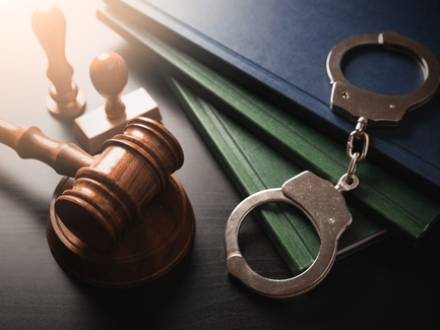 If you are facing criminal charges in Texas, any prior convictions can have a significant impact on your current case. It is crucial to understand how these previous convictions might influence sentencing, plea negotiations, and overall defense strategy. An experienced Texas criminal defense lawyer can review your case, offer invaluable guidance, and help you navigate the legal system.
If you are facing criminal charges in Texas, any prior convictions can have a significant impact on your current case. It is crucial to understand how these previous convictions might influence sentencing, plea negotiations, and overall defense strategy. An experienced Texas criminal defense lawyer can review your case, offer invaluable guidance, and help you navigate the legal system.
What Role Do Prior Convictions Play?
Texas law takes prior convictions seriously, and how much they can influence your current case depends on the nature and timing of those past offenses.
Enhanced Sentencing
According to the Texas Penal Code, a felony charge for someone with prior felony convictions might end up facing an elevated charge. For example, a second-degree felony, which typically carries a sentence of two to 20 years in prison, could be upgraded to a first-degree felony, which has a maximum sentence of life imprisonment.
Is There Any Way Out of a Field Sobriety Test in Texas?
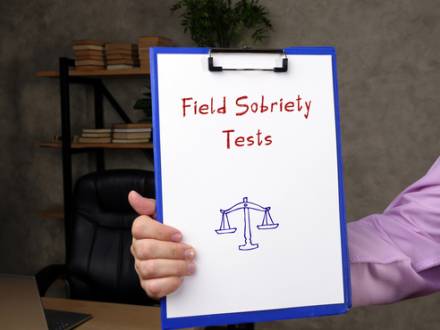 When someone is pulled over in Texas and the police suspect that he is driving under the influence of drugs or alcohol, they might ask the driver to take a field sobriety test. These tests are used to check for signs of intoxication, but you might be surprised to read that you could have valid reasons to refuse to take them.
When someone is pulled over in Texas and the police suspect that he is driving under the influence of drugs or alcohol, they might ask the driver to take a field sobriety test. These tests are used to check for signs of intoxication, but you might be surprised to read that you could have valid reasons to refuse to take them.
There are some important things to consider before deciding to refuse, for example, the grounds you would use for your refusal and the potential consequences you can face. A qualified Texas criminal defense lawyer can help you if you are facing legal challenges and unsure what to do.
How Do Field Sobriety Tests Work?
A field sobriety test (FST) is a series of tasks that test physical and mental capabilities. Police use these to determine if someone is impaired. There is no one set test that must be given, and police typically include any or all of the following:
Are Ghost Guns Legal in Texas?
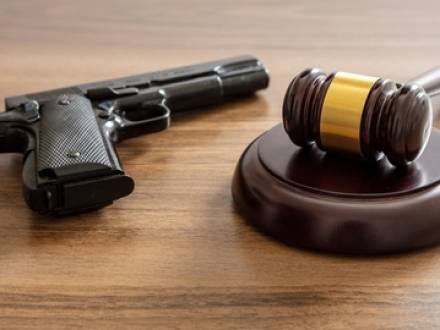 Ghost guns have been coming up in the news lately, especially following a high-profile case that involved one a few months ago. While we all know that as Americans, we have the right to bear arms, as stated in the Second Amendment of the U.S. Constitution, ghost guns are a hot topic for legal debate because of their unique nature. To learn more about whether you could face weapons charges for possessing a ghost gun, speak with a qualified Texas criminal defense lawyer.
Ghost guns have been coming up in the news lately, especially following a high-profile case that involved one a few months ago. While we all know that as Americans, we have the right to bear arms, as stated in the Second Amendment of the U.S. Constitution, ghost guns are a hot topic for legal debate because of their unique nature. To learn more about whether you could face weapons charges for possessing a ghost gun, speak with a qualified Texas criminal defense lawyer.
How Are Ghost Guns Categorized?
According to Texas law, anything that has been designed, made, or adapted so that energy from ignition or an explosion can be used to send a projectile through a barrel is considered a firearm. Federal law goes a bit further by adding other parts, including a weapon’s frame, receiver, muffler, or silencer under the definition.
What Happens When You Are Charged With Cyberbullying in Texas?
 As more aspects of daily life continue to move into the digital space, states like Texas have begun adopting legal measures to address various ways it has impacted people. One prominent example is cyberbullying. The term itself can cover so many different actions that it can be hard to understand what is and is not included by its legal definition, however, if your actions fall under the cyberbullying legal umbrella, you could face criminal charges. If you or your child is charged with cyberbullying, speak with a skilled Texas criminal defense lawyer to understand the implications and your options.
As more aspects of daily life continue to move into the digital space, states like Texas have begun adopting legal measures to address various ways it has impacted people. One prominent example is cyberbullying. The term itself can cover so many different actions that it can be hard to understand what is and is not included by its legal definition, however, if your actions fall under the cyberbullying legal umbrella, you could face criminal charges. If you or your child is charged with cyberbullying, speak with a skilled Texas criminal defense lawyer to understand the implications and your options.
What Is Considered Cyberbullying?
The term cyberbullying refers to an imbalance of power when someone does something to someone else using technology – texting, emailing, or on social media, for example – to:
What Does Entrapment Mean and How Can I Use It in My Defense?
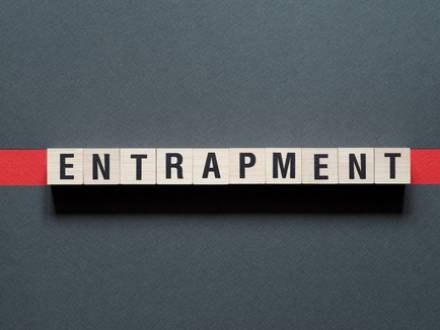 Police are meant to protect citizens, keep their communities safe, and stop crimes from happening. However, there are some scenarios when a defendant can claim that he only committed a crime because the police manipulated him into doing so. If you believe you were tricked or pushed by police into doing something illegal that you otherwise would not have done, speak with an experienced Texas criminal defense lawyer about whether you have a valid entrapment claim.
Police are meant to protect citizens, keep their communities safe, and stop crimes from happening. However, there are some scenarios when a defendant can claim that he only committed a crime because the police manipulated him into doing so. If you believe you were tricked or pushed by police into doing something illegal that you otherwise would not have done, speak with an experienced Texas criminal defense lawyer about whether you have a valid entrapment claim.
What is Entrapment?
Entrapment is the term used for a defense strategy that involves the defendant claiming he was tricked or forced into committing a crime by government agents or police officers. A key component is the argument that he would not have committed the crime normally, but an undercover agent or police officer encouraged or manipulated him into doing it.
When Are Juveniles Tried as Adults in Texas?
 In Texas, most crimes committed by juveniles are handled in the juvenile justice system. This system focuses on rehabilitation, offering young people a chance to learn from their mistakes and make necessary changes so they can move forward.
In Texas, most crimes committed by juveniles are handled in the juvenile justice system. This system focuses on rehabilitation, offering young people a chance to learn from their mistakes and make necessary changes so they can move forward.
However, there are some cases when juveniles are tried as adults. This can lead to harsher penalties and a lifelong criminal record. If your juvenile child is facing criminal charges, a knowledgeable Texas criminal defense lawyer can review his case and help protect his rights and future.
When Does Texas Try a Juvenile as an Adult?
Anyone under the age of 17 is considered a juvenile according to Texas law. Juveniles charged with crimes are typically processed in the juvenile justice system. However, some crimes are considered serious enough for defendants to be tried in adult court regardless of their age.
What Is Double Jeopardy and Can It Affect My Case?
 The phrase "double jeopardy" refers to a legal right in the Fifth Amendment of the U.S. Constitution that prevents people from being tried for the same criminal offense twice. It applies in all states, including Texas. This rule is designed to ensure that the legal system is fair by protecting people from being prosecuted repeatedly for the same crime. For more information about how this can apply to your criminal case, speak with a qualified San Antonio, TX criminal defense lawyer.
The phrase "double jeopardy" refers to a legal right in the Fifth Amendment of the U.S. Constitution that prevents people from being tried for the same criminal offense twice. It applies in all states, including Texas. This rule is designed to ensure that the legal system is fair by protecting people from being prosecuted repeatedly for the same crime. For more information about how this can apply to your criminal case, speak with a qualified San Antonio, TX criminal defense lawyer.
What Does Double Jeopardy Prevent?
Double jeopardy is protected in Section 14 of Texas’ Bill of Rights, as well as the U.S. Constitution. There are three main things that double jeopardy prevents:





